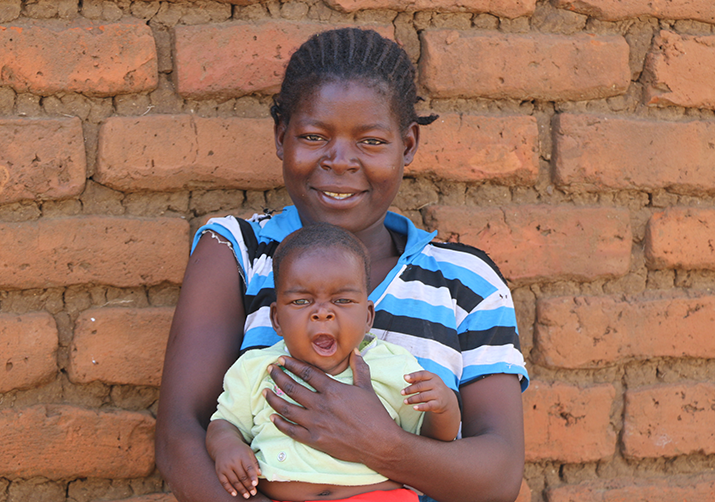Community Score Card and Baby’s Birth Lead to Ambulance for Health Center
Community Score Card and Baby’s Birth Lead to Ambulance for Health Center

Maria Galasiano had been in labor for 16 hours. Finally, the medical assistant on duty called Balaka District Hospital 66 km away to send an ambulance to pick up the young mother. The lives of her and her baby were at risk.
The ambulance arrived at Phimbi Health Center after midnight and also had to take an IV-bound man on a stretcher, plus caretakers for both patients, and a nurse. They all packed into the ambulance.
After 20 km on the road, Galasiano’s contractions intensified. The driver pulled over and Galasiano gave birth, luckily, to a healthy boy.
The USAID-funded Organized Network of Services for Everyone’s Health (ONSE) Activity and the Balaka District Health Office reviewed Phimbi Health Center’s Community Score Card (CSC) and probed underlying factors for high maternal and newborn deaths and noted the lack of an ambulance. At a follow-up meeting with local health authorities and the community, Galasiano described how she gave birth on the steel floor of a crowded ambulance in the middle of the night.
As a result of her story and the CSC review, an ambulance was re-allocated to Phimbi Health Centre the same week.
“We have been engaging the authorities to have our ambulance here with little success. Admittedly we … did not really see our own role to support the reallocation through mobilizing bricks to build a driver’s house, or take turns to do nightly patrols at the hospital,” said Alex Chiphathi, a health center advisory committee member. “With CSC, our roles and rights are defined and we feel very much a part of the hospital, not just its beneficiaries.”
CSC enables service users to “score” how well needed services are being delivered and to negotiate with service providers to address challenges and make improvements. ONSE uses CSC as one approach to create demand for quality priority health services to reduce maternal, newborn, and child morbidity and mortality.
At home lulling baby Miliasi, whom she named after the IV patient in the ambulance, Galasiano said, “I am happy, very happy. Giving birth is inherently a pain that gives joy. It must be made comfortable for every woman.”
This story is made possible by the support of the American People through the US Agency for International Development (USAID). The contents of this story are the sole responsibility of Organized Network of Services for Everyone’s (ONSE) Health Activity and do not necessarily reflect the views of USAID or the United States Government.